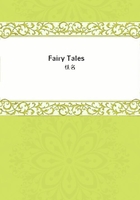
第71章
The student took his knapsack and betook himself to the ferry-house. The house door was not locked- it opened, and he went into a room with a brick floor, where a bench, with a great coverlet of leather, formed the chief article of furniture. A white hen, who had a brood of chickens, was fastened to the bench, and had overturned the pipkin of water, so that the wet ran across the floor. There were no people either here or in the adjoining room; only a cradle stood there, in which was a child. The ferry-boat came back with only one person in it. Whether that person was a man or a woman was not an easy matter to determine. The person in question was wrapped in a great cloak, and wore a kind of hood. Presently the boat lay to.
It was a woman who got out of it and came into the room. She looked very stately when she straightened her back; two proud eyes looked forth from beneath her black eyebrows. It was Mother Soren, the ferry-wife. The crows and daws might have called out another name for her, which we know better.
She looked morose, and did not seem to care to talk; but this much was settled, that the student should board in her house for an indefinite time, while things looked so bad in Copenhagen.
This or that honest citizen would often come to the ferry-house from the neighboring little town. There came Frank the cutler, and
Sivert the exciseman. They drank a mug of beer in the ferry-house, and used to converse with the student, for he was a clever young man, who knew his "Practica," as they called it; he could read Greek and
Latin, and was well up in learned subjects.
"The less one knows, the less it presses upon one," said Mother
Soren.
"You have to work hard," said Holberg one day, when she was dipping clothes in the strong soapy water, and was obliged herself to split the logs for the fire.
"That's my affair," she replied.
"Have you been obliged to toil in this way from your childhood?"
"You can read that from my hands," she replied, and held out her hands, that were small indeed, but hard and strong, with bitten nails.
"You are learned, and can read."
At Christmas-time it began to snow heavily. The cold came on, the wind blue sharp, as if there were vitriol in it to wash the people's faces. Mother Soren did not let that disturb her; she threw her cloak around her, and drew her hood over her head. Early in the afternoon- it was already dark in the house- she laid wood and turf on the hearth, and then she sat down to darn her stockings, for there was no one to do it for her. Towards evening she spoke more words to the student than it was customary with her to use; she spoke of her husband.
"He killed a sailor of Dragor by mischance, and for that he has to work for three years in irons. He's only a common sailor, and therefore the law must take its course."
"The law is there for people of high rank, too," said Holberg.
"Do you think so?" said Mother Soren; then she looked into the fire for a while; but after a time she began to speak again. "Have you heard of Kai Lykke, who caused a church to be pulled down, and when the clergyman, Master Martin, thundered from the pulpit about it, he had him put in irons, and sat in judgment upon him, and condemned him to death? Yes, and the clergyman was obliged to bow his head to the stroke. And yet Kai Lykke went scot-free."
"He had a right to do as he did in those times," said Holberg;
"but now we have left those times behind us."
"You may get a fool to believe that," cried Mother Soren; and she got up and went into the room where the child lay. She lifted up the child, and laid it down more comfortably. Then she arranged the bed-place of the student. He had the green coverlet, for he felt the cold more than she, though he was born in Norway.
On New Year's morning it was a bright sunshiny day. The frost had been so strong, and was still so strong, that the fallen snow had become a hard mass, and one could walk upon it. The bells of the little town were tolling for church. Student Holberg wrapped himself up in his woollen cloak, and wanted to go to the town.
Over the ferry-house the crows and daws were flying with loud cries; one could hardly hear the church bells for their screaming.
Mother Soren stood in front of the house, filling a brass pot with snow, which she was going to put on the fire to get drinking water.
She looked up to the crowd of birds, and thought her own thoughts.